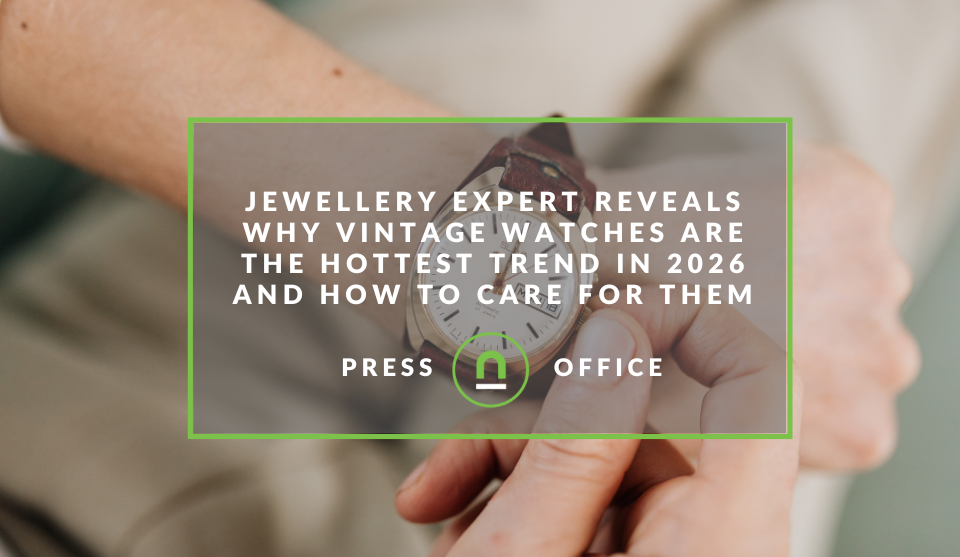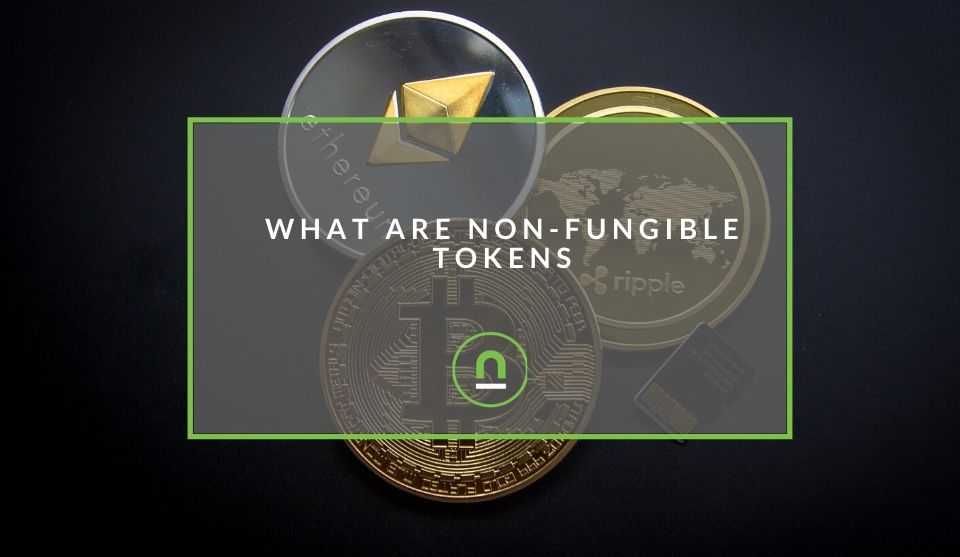Recent posts

Money Talks
XRP vs. Stablecoins: Which Is Better for Cross-Border Payments in 2026?
28 January 2026

Press Releases
Sleep Expert Cautioning Against TikTok’s ‘Mouth Taping’ Trend
28 January 2026

Press Releases
Why Vintage Watches Are the Hottest Trend in 2026
27 January 2026

Press Releases
Africaworks Accelerates The Rollout Of Real Estate Investment Platform
20 January 2026
Popular posts
Extravaganza
Trending Music Hashtags To Get Your Posts Noticed
24 August 2018
Geek Chic
How To Fix iPhone/iPad Only Charging In Certain Positions
05 July 2020
Extravaganza
Trending Wedding Hashtags To Get Your Posts Noticed
18 September 2018
Money Talks
How To Find Coupons & Vouchers Online In South Africa
28 March 2019
What Are Non-fungible Tokens
04 May 2020 | 1 comments | Posted by Che Kohler in Money Talks
The world of cryptocurrency and blockchain technology is improving at a rapid rate. Bitcoin pioneered a new way of keeping track of digital wealth and its distributed ledger technology has solved the double-spend problem and opened up a world where the private individual can hold digital wealth. The idea of moving and managing value online started with currency alternatives.
Still, with the introduction of tokenisation and smart contracts, we've seen the concept applied to the creation of digital assets, known as non-fungible tokens.
What does non-fungible mean?
To understand why these tokens are distinctive, we need to look at the difference between "fungible" and "non-fungible." When something is fungible, in this case, a token, it means it can be easily replaced by something identical that is readily available – and it is interchangeable with ease.
When something is non-fungible, it cannot be exchanged on a one to one basis, and the market sets a price for each NFT based on a range of criteria.
What are the differences with non-fungible tokens?
Non-fungible tokens are different type of cryptographic token which represent something unique. Since each token is unique when created with Non-fungible tokens, they are thus not interchangeable with one another, and all hold different values to the buyer and seller market.
What value proposition for NFTs?
Fungible tokens value is pitched as a replacement for traditional financial assets such as fiat currency, stocks and bonds where two users want to trade interchangeable amounts. Non-fungible tokens are traded on the basis that the single asset attached to a specific blockchain has a particular value that is tied to the specific token/asset.
The value comes from its unique attributes as well as scarcity and perhaps even function. Think of NFT's like the digital version of owning property, baseball cards, collector's items, antiques and more.
If people are willing to pay fo non-fungible tokens, it is because the concept of a single asset on a blockchain is attractive.
What future for non-fungible tokens?
One of the first apparent applications is video games, including object management in online games where in-game items can be bought or sold and hold value as players want certain things to complete tasks in the gaming world.
As mentioned earlier, a more tangible or real-world application is the "tokenisation" of physical assets, which can now have a digital counterpart on a public blockchain. For example, it would be easy to tokenise the deed to a home or car, a will that all have value in the financial sense, but the ownership is proven digitally.
In terms of marketing and eCommerce, NFTs can be a cheaper alternative to managing certain digital or info products like online courses and eBooks as well as a great way to manage ticket sales, vouchers and coupons.
Non-fungible tokens are a new concept that has quickly gained momentum, and you can see why its a favoured medium. It helps to understand a new application of the blockchain and bridge the gap between the physical and digital value which can, in the long run, play an essential part in the way we interact with our digital objects and assets.
Pioneering proof of taste
In buying a non-fungible token, for an original piece of music, patrons not only support an artist but now, just like in the real art world, actually own something that is unique. The NFT music file can be time-stamped within the tokens metadata along with the release batch ID that proves 'they liked it before it was cool.
Remember back when collecting vinyl and having the first print run meant something? Well with NFT's we can do something similar and not every music file will be created equal.
The history of NFTs
The concept of non-fungible tokens (NFTs) surfaced in September 2019 by Dieter Shirley and is defined under the Ethereium ERC721 standard. Unlike ERC20 tokens, which is a popular tokenisation system used during ICOs and creating a variety of tokenomics, they are fungible like bitcoins, ERC721 tokens have properties that make each ERC721 unique and therefore non-fungible digital assets.
Two NFTs from the same emission do not have the same attributes and are not equal. The analogy can be made with a collector’s item in real life: it is unique and cannot be reproduced or exchanged; otherwise, it will lose its value.
While Ethereum was the first blockchain to have Non-Fungible Tokens, it is by no means the only one, with chains like STEEM, HIVE, EOS, VeChain and more.
The first breakthrough for NFT
It only took three months of the release of the NFT concept before its first use went down in history as the project that brought down Ethereum and showed its scaling issues. Thanks to the famous project Cryptokitties, a dApp that allows you to buy and sell digital tokens, each of which represents a unique kitten.
The NFT project was a hit and at its peak on the 5th of December 2017 hit 140,000 out of a total of 700,000 Ethereum transactions, about 20% of the total traffic. The number of transactions was impressive, but even more so, the most expensive Cryptokitty has been sold for 600 ETH, or 172,625 USD at the time of sale. To date, no NFT project has hit the same heights, but the most popular of the latest brand of NFT dApps has to be Decentraland and Splinterlands.
Creating NFTs
NFT's are most popular on the Ethereum blockchain and projects are now coming on board to help the average user create one themselves, dApps like 0xcert. The platform offers an NFT "plug and play" framework, which means that a non-fungible token can be developed and verified quicker – and the platform claims it is achievable in days.
In the dPOS space, there are chains like HIVE that have a platform known as HIVE-Engine which runs its own NFT platform based on a Side Chain of HIVE and claim to allow anyone with a HIVE account the ability to create NFTs.
Contact us
If you would like to know more about digital assets or would like to market your digital asset company or how to set it up for your business, then don’t be shy we’re happy to assist. Simply contact us
Are you looking to promote your business?
South African finance business owners can create your free business listing on nichemarket. The more information you provide about your business, the easier it will be for your customers to find you online. Registering with nichemarket is easy; all you will need to do is head over to our sign up form and follow the instructions.
If you require a more detailed guide on how to create your profile or your listing, then we highly recommend you check out the following articles.
Recommended reading
If you enjoyed this post and have a little extra time to dive deeper down the rabbit hole, why not check out the following posts on cryptocurrency and blockchain.
- Why Blockchain and Cryptocurrency Is The Future Of Money
- 24 Ways To Earn Cryptocurrency
- How To Pay Tax On Cryptocurrency In South Africa
- How To Buy Bitcoin In South Africa
- Why Does Your Bitcoin Wallet Address Keep Changing?
Disclaimer: This article should not be taken as, and is not intended to provide any investment advice and is for educational purposes only. As of the time posting the writers may or may not have holdings in some of the coins or tokens they cover. Please conduct your own thorough research before investing in any cryptocurrency as all investments contain risk.
Tags: Blockchain , Cryptocurrency
You might also like
Africaworks Accelerates The Rollout Of Real Estate Investment Platform
20 January 2026
Posted by Nicolas Teisserenc in Press Releases
AWIP accelerates the rollout of its urban real estate investment platform in West Africa, raising €4m and fully deploying it into two off-market acqu...
Read moreXRP vs. Stablecoins: Which Is Better for Cross-Border Payments in 2026?
28 January 2026
Posted by Pham Van in Money Talks
XRP or Stablecoins? Discover which wins for cross-border payments in 2026. Compare speed, costs, and stability in our latest global finance guide.
Read more{{comment.sUserName}}
{{comment.iDayLastEdit}} day ago
{{comment.iDayLastEdit}} days ago
 {{blogcategory.sCategoryName}}
{{blogcategory.sCategoryName}}
